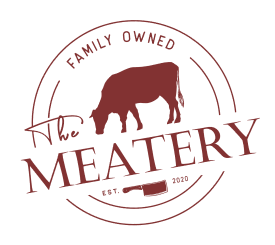The Origin Of Wagyu And Kobe Beef
Understanding the distinction between Kobe beef and wagyu begins with their definitions and historical origins. Wagyu, literally meaning "Japanese cow," refers to several breeds of cattle native to Japan. These breeds have been carefully cultivated over centuries to produce meat with exceptional marbling, tenderness, and flavor.
The term "wagyu" encompasses four main Japanese cattle breeds:
- Japanese Black (Kuroge)
- Japanese Brown (Akage)
- Japanese Shorthorn (Nihon Tankaku)
- Japanese Polled (Mukaku)
Kobe beef, on the other hand, is a specific brand of wagyu beef that comes exclusively from Tajima-gyu cattle (a strain of Japanese Black) raised in Hyogo Prefecture, where the city of Kobe is located. To be certified as Kobe beef, the meat must meet stringent criteria established by the Kobe Beef Marketing and Distribution Promotion Association.
The history of these cattle dates back to the 2nd century when they were primarily used as draft animals in agriculture. The isolation of Japan during the Edo period (1603-1867) led to the development of these unique cattle breeds. It wasn't until the Meiji Restoration in 1868 that Japan began incorporating Western breeding practices, further refining these cattle for meat production.
Differences In Cattle Breed And Lineage
The primary distinction between Kobe beef and regular wagyu lies in their genetic lineage and breeding requirements. Kobe beef comes exclusively from Tajima-gyu bloodlines, which are considered the most elite of the Japanese Black cattle strain.
To qualify as authentic Kobe beef, cattle must meet these specific criteria:
- Pure Tajima-gyu lineage
- Born and raised in Hyogo Prefecture
- Strictly controlled diet and raising conditions
- Must be a virgin cow or bullock
- Processed in approved facilities within Hyogo Prefecture
Regular wagyu, while still exceptional in quality, can come from any of the four Japanese breeds or their crossbreeds. This includes both full-blood wagyu and hybrid varieties like American Wagyu, which typically results from crossing Japanese wagyu with Angus cattle.
The genetic composition directly influences the meat's characteristics, particularly its marbling pattern, known as shimofuri in Japanese. Kobe beef exhibits a more refined and consistent marbling pattern compared to regular wagyu, contributing to its superior taste and texture.
Cost And Pricing Analysis
The price difference between Kobe beef and regular wagyu is substantial, reflecting their distinct qualities and production requirements. Authentic Kobe beef typically commands prices ranging from $200 to $400 or more per pound, making it one of the most expensive meats in the world.
Price comparison breakdown:
- Authentic Kobe Beef: $200-$400+ per pound
- Japanese Wagyu (non-Kobe): $100-$200 per pound
- American Wagyu: $50-$100 per pound
Several factors contribute to these price differences:
- Limited production capacity (only about 3,000 Kobe cattle certified annually)
- Strict regulation and certification processes
- Intensive raising methods and specialized feed
- Export restrictions and limited availability
- High demand in global markets
Cooking Methods
Both Kobe beef and wagyu require specific cooking techniques to maximize their unique qualities. The high fat content and delicate marbling demand careful preparation to achieve optimal results.
Recommended cooking methods for Kobe beef:
- Grilling on high heat for brief periods
- Pan-searing with minimal seasoning
- Serving in small portions due to richness
- Cooking to medium-rare at most
Cooking techniques for regular wagyu:
- Similar methods to Kobe, but with more flexibility
- Can withstand slightly longer cooking times
- Suitable for various cooking styles including sukiyaki and shabu-shabu
- Works well with different seasonings and marinades
Buying Guide
When purchasing either Kobe beef or wagyu, it's essential to understand what you're buying and how to identify authentic products.
For authentic Kobe beef:
- Look for the official Kobe beef certification mark
- Purchase only from authorized retailers
- Each cut should have a unique identification number
- Expect to see documentation of origin
For wagyu beef:
- Check the beef's grade (A5 being the highest for Japanese wagyu)
- Verify the breed certification
- Research the supplier's reputation
- Understand the specific type of wagyu being purchased
Why is Kobe beef so expensive?
The extraordinary cost of Kobe beef results from a combination of strict production requirements, limited availability, and exceptional quality standards. The cattle must be raised according to traditional methods that have been refined over centuries.
Key factors contributing to the high price:
- Extremely limited production numbers
- Intensive care requirements including daily massage
- Special feed mixture including premium grains
- Strict certification process
- High labor costs in Japan
Additionally, each animal must pass rigorous quality assessments, with only a small percentage meeting all criteria for certification. This exclusivity further drives up the price, making Kobe beef a luxury commodity.
Why is Kobe beef so rare?
The rarity of Kobe beef stems from multiple factors that limit its production and availability. Only about 3,000 cattle annually meet the strict requirements to be certified as authentic Kobe beef.
Factors contributing to its rarity:
- Geographic restrictions (must be raised in Hyogo Prefecture)
- Pure bloodline requirements
- Strict raising conditions
- Limited number of certified producers
- Rigorous grading standards
Furthermore, export restrictions and regulations make genuine Kobe beef even more scarce outside of Japan, with only a small number of countries having access to certified imports.
Is Kobe beef only raised in Japan?
Yes, authentic Kobe beef can only be raised in Japan, specifically within Hyogo Prefecture. This geographical restriction is a crucial part of what makes Kobe beef unique and is protected by strict regulations and trademarks.
While other countries may raise wagyu cattle, including those with Tajima-gyu genetics, they cannot produce true Kobe beef. The term "Kobe beef" is protected under Japanese law and international agreements, similar to how champagne must come from the Champagne region of France.
Some key points about Kobe beef production:
- Must be born, raised, and processed in Hyogo Prefecture
- Can only be produced by licensed farms
- Must follow traditional Japanese raising methods
- Requires certification from the Kobe Beef Marketing and Distribution Promotion Association
- Any beef labeled as "Kobe" from outside Japan is not authentic Kobe beef
The Meatery is one of the only online storefronts NATIONWIDE that will ship Kobe Beef to your doorstep with guaranteed two-day shipping. Come check out our Kobe beef Catalog and let your tastebuds experience excellency!










